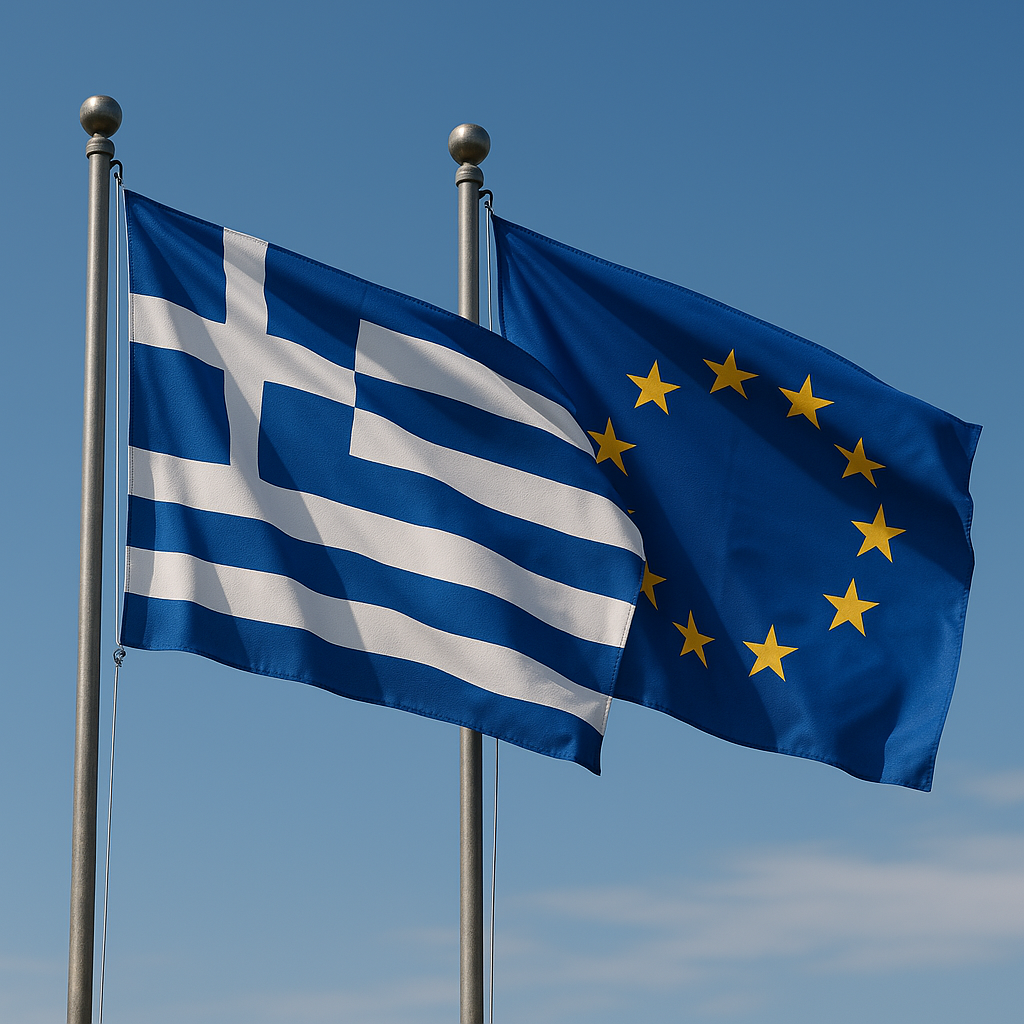Greece, the European Union and the 2003 Presidency
A presentation of the challenges facing the Greek Presidency of the European Union.

FOREWORD BY JACQUES DELORS
I am very grateful to George Pagoulatos for the clarity and insight with which he presents the turbulent history of Greece’s integration into the European Union and the lively debates to which it gave rise. This history is anything but linear, since Greece’s entry into the European Community on 1 January 1981 was followed in October of the same year by the “historic victory” of PASOK, which had opposed accession, and by the formation of the first Papandreou government, which in many respects ushered in a period of rupture with the European mainstream. By reminding us that public spending as a share of Greek GDP rose from 29% in 1975 to 51% in 1990, G. Pagoulatos allows us to gauge the scale of this break.
He also rightly dates the beginning of the 1990s, after a largely peaceful change of government, as the start of an uninterrupted period of convergence and integration which spectacularly brought Greece to the centre of European politics. The fact that average per capita income relative to the Community average is now back to its 1978 level (70%) dramatically sums up the turbulent nature of this historical development. We must now forget the stereotypes about Greece’s marginality in the Union, because they are obsolete. I share the author’s assessment of Greece’s current position in Europe as a success story, whether in terms of its political, economic and administrative development, its integration into the EMU and the single market, or its international standing. I am also aware of the immense contribution made by Prime Minister Kostas Simitis to this success, which I could not fail to mention in this brief preface. The new central role of Greece can be gauged by the fact that, although it will officially take over the presidency of the Union on 1 January 2003, it has in fact been exercising this role since 1 July in matters relating to EMU and ESDP due to Denmark’s abstention on these two policies.
And this central role of the country holding the presidency is a valuable asset for all of us in the very delicate period that is now beginning: we will have no less a task than to bring the Thessaloniki Treaty to a successful conclusion, a treaty which will go down in history as the treaty which reunited the continent, and to ensure that the handover of the presidency to Italy coincides with the delicate transition from the Convention to the Intergovernmental Conference, in order to give the Union the institutions it will need to make this reunification a success. I will not forget that in the meantime, we will have to ensure the success of the Spring European Council, which now sets the pace for the economic and social life of the Union, and much more besides… At a time when the fate of political Europe will largely be decided, it is with confidence and hope that I see the country that invented democracy and, more recently, achieved record levels of support for European integration among its people – the highest among the Fifteen – taking on the responsibility of the Presidency.





